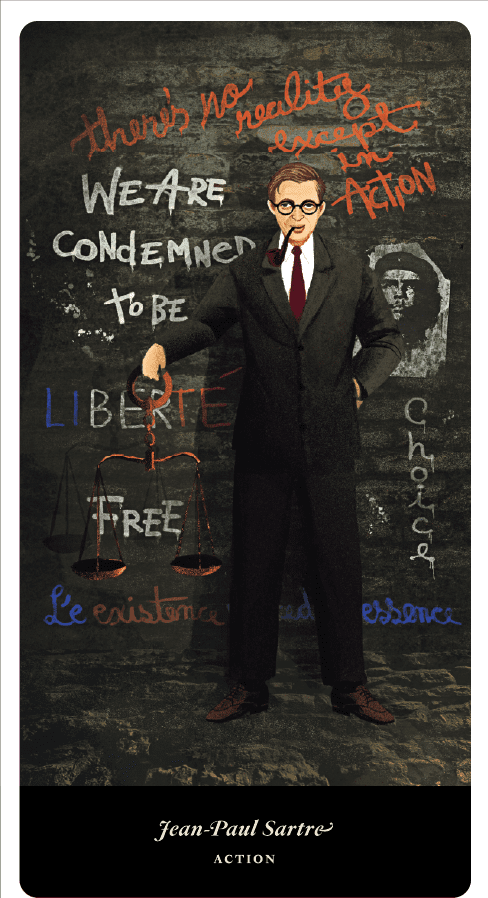Jean-Paul Sartre |There Is No Reality Except in Action 1905 FRANCE 1980 FRANCE
Jean-Paul Sartre is a philosopher of action. In Sartre’s conception of life, there is no creator or underlying nature shaping our existence. There is no fate or destiny, no true self that needs to be unearthed or expressed, and no divine plan for our lives to follow. There is only choice, and the lives we create for ourselves by way of our freedom and actions. There are indeed facts about us, such as the place and time of our birth, the nation and family we are born into, and the historical circumstances into which we are thrown, which Sartre calls “facticity.” However, these facts are subject to our interpretations and change through the course of our actions. For Sartre, we are never defined once and for all. Our lives are works in progress: we are always free to change them and give ourselves a new direction with every choice and action we take. As Sartre puts it, “Man is nothing else than his plan; he exists only to the extent that he fulfills himself; he is therefore nothing more than the ensemble of his acts, nothing else than his life.”

